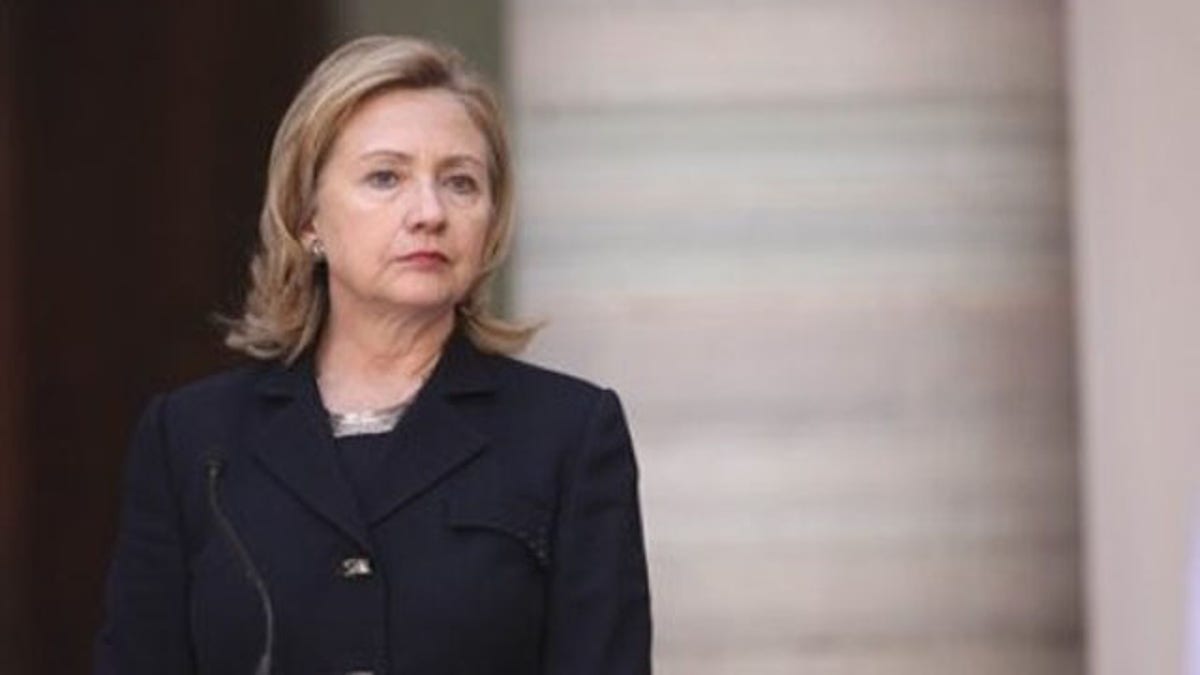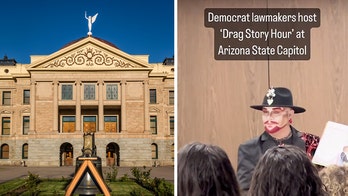
Secretary of State Hillary Clinton listens to a question at a press conference in Guanajuato, Mexico, Jan. 24. (AP)
Egypt's young people, fresh off of toppling a 30-year dictatorship through the help of social media, used that technology to grill Secretary of State Hillary Clinton on Wednesday, asking her why the U.S. didn't express support for the revolution sooner.
"The attitude of the U.S. during the Egyptian revolution was to support the Egyptian regime first," read one of the nearly 6,500 questions, videos and audio files users submitted through the Egyptian social media website, Masrawy. "Then, when the revolution turned successful, the U.S. switched sides and supported the Egyptian youth. Why?"
Clinton disputed that notion, saying that the U.S. wanted to make sure its support didn't lead to an outbreak of violence.
"We wanted to see the aspirations of the Egyptian people, particularly young people, realized. And then we advocated from the very beginning for a reform process that would lead to an Egyptian model of democracy," she said.
"So I think that we were walking a balance, because we wanted to be sure that our message did not push anyone into doing something that we disagreed with, namely violence, which we tried to, in every way possible, prevent," she said.
The Obama administration drew heavy fire for its cautious response to the 18-day revolution, when it struggled to balance its support for the protesters with protecting U.S. interests, including a peace treaty between Egypt and Israel that President Hosni Mubarak maintained during his 29 years in power.
The U.S. has taken a similar tack in responding to the other popular uprising spreading across the Middle East and North Africa. Clinton's answers came just hours before President Obama announced he was dispatching her to Geneva for international talks aimed at stopping the violence in Libya, the latest battleground.
Another comment from the Egyptian youth on Wednesday criticized U.S. foreign policy for embracing oppressive regimes and treating them like true democracies.
"The United States has relations with many countries whose values we do not always agree with and whose actions we often criticize," Clinton responded. "But we do have relationships with China, with Russia, with Egypt in the past that are very complicated and which operate on several levels at once."
Clinton added that the U.S. continued to criticize these regimes like Mubark's publicly and privately even as the U.S. helped maintain the Egypt-Israel peace treaty that she believes saved lives.
Clinton warned that democracy is not just an election, citing Iran where citizens continue to be denied freedom or human rights in the wake of its recent election.
"So what Egypt is now grappling with is how to have a sustainable, enduring democracy, where, yes, the rights of minorities are protected, the rights of women are protected, you have an independent judiciary, an independent and free media, including social media, where the economic shackles are thrown off so that young people can start businesses without having to pay off bribes to government officials," she said.
"There's so much now to be done, and the United States stands ready to assist in every way possible," she said.




